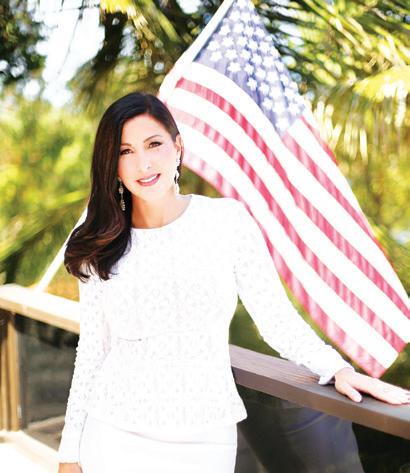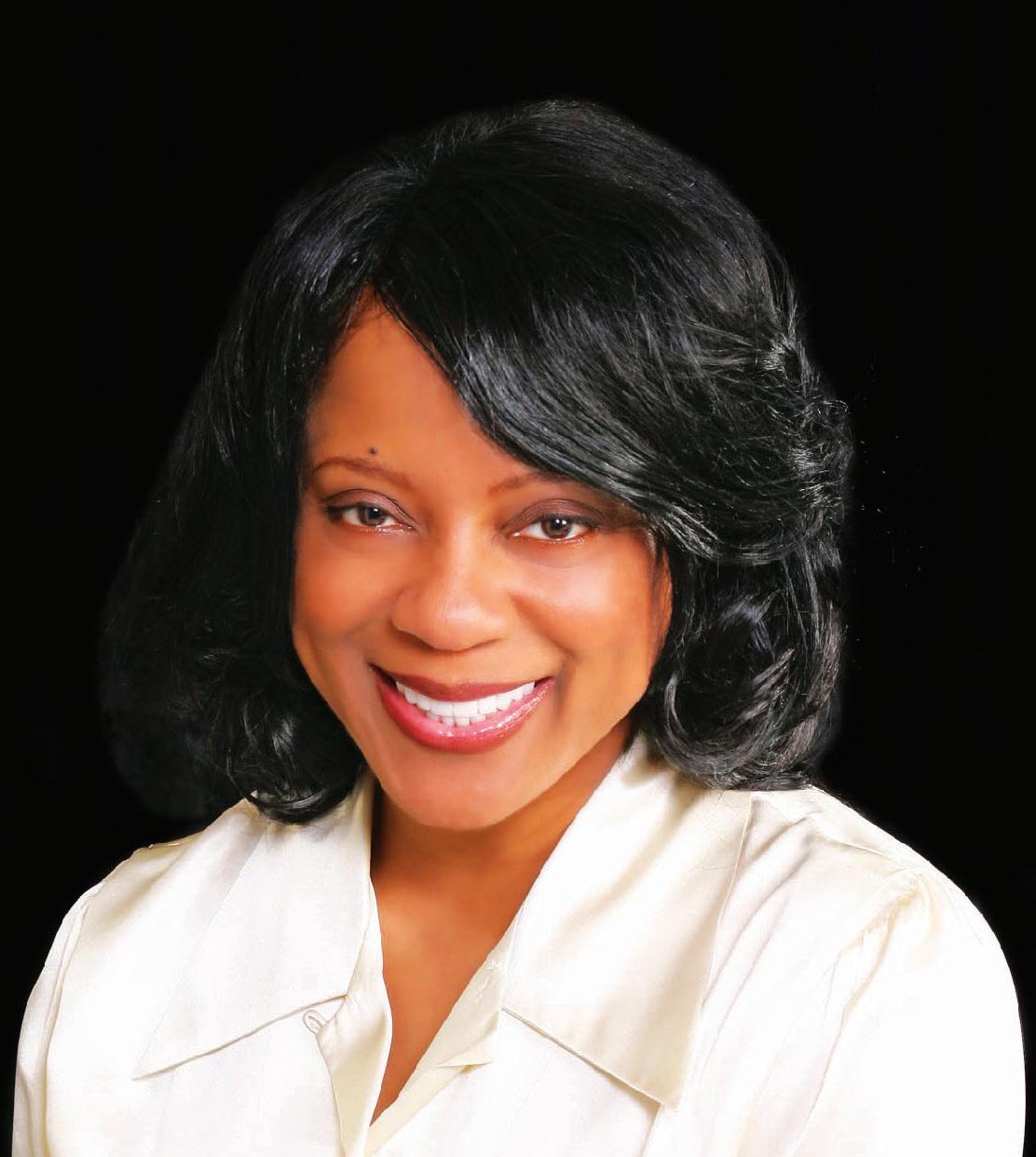

















Unity is strength... when there is teamwork and collaboration, wonderful things can be achieved.
Mattie Stepanek







Exceptional People Magazine’s
PRINCIPLES AND PHILOSOPHIES THAT HELP MAKE THEM SUCCESSFUL














Use your reputation, your resourcefulness, and your resilience.

“You determine how much someone else will believe in your dream. People will invest in you when they see that you’re willing to invest in yourself.

I made a little mantra called the Three R’s. It’s what I base my core values on and it helps me to make decisions, but it is also a reminder of where I came from.
The first R is your reputation. No matter how rich or poor you are, nobody can take your reputation away, not even the IRS. I’ve banked on my reputation many times. If I shake someone’s hand, look them in the eye, and say I’m going to do something, I do it. If I owe you a dollar, you’ll get that dollar with a thank you note in the mail. A solid reputation is very valuable. It’s your choice to destroy it or not. You can rebuild it, but it’s better to protect it as a main asset.
The second R is resourcefulness. There are so many resources available to us. As women, we now have more opportunities than we have ever had in history. So if you don’t know what to do, ask for help. God says, "Ask me." I truly believe in that. Resources are here to help propel us to the next level, not to use as a crutch or a lifestyle.
The third and most important R is resilience. Think of a basketball. Every time you slam it against the concrete, it bounces back. If you can bounce back after taking a blow, that differentiates you as a person who is determined and successful.”











“One of the places where we have the biggest gravity is around how we launch our products or our companies into the market: We do it backwards. Traditionally, we develop a product. We keep it secret from our sales force. We keep it secret from the market. A month before it’s going to come out, we start to talk to people about it. A week before it comes out, we talk to the press. Then we put out the press release and train our sales reps. We say “Here’s our new product” with nobody using it, no sales, no revenue, and we’re starting from that point in time.
And we have no credibility. That is not the way to be successful in a market launch. Instead, early on, you want to say, “I’m going to take my product concept, and I’m going to go to the top ten target markets, and I’m going to test it. I’m going to have them start to use it, or I’m going to show it to them, and I’m going to get them to start to talk about it.” Get customers using your product. Have a sales force out selling your product. Create a buzz in the market about it before you ever announce it.


I think of it as whispering. Go out to market and whisper, because everybody wants to know what the secret is. It sets you up for success. It’s also cheaper than the way products are usually launched. It’s much more cost-effective and it sets you up to be credible.”









“When trying to persuade others to take action, women often take rejection personally. They've got their blood, sweat, heart, and tears in it, and they become emotionally attached to the product. So when the customer has a comment or an objection, some women take it personally because they're emotionally attached.


Studies have shown that women as well as introverts make some of the best salespeople in the world because they’re good at listening, and they communicate on an emotional level. Sales are about 93 percent emotion and 7 percent logic. Women are convincing on the emotional level. That's where the strength of women comes in; really getting to the heart of the matter and finding out what is important to the client.”
“I want to leave having made this world a little bit better by transferring my skill sets to others to make their lives better, so that they can make their own communities better. It’s about more than helping someone make a living. It’s about helping them create a life worth living.”












“Before you can gain anything, you have to want something. People learn in different ways. We may not all learn the way they teach in an academic setting; some people may learn in a more practical way. But every gain stems from a burning desire, from wanting to be something or somebody.
You've also got to be thankful. Gratitude leads to plenty. God could have made us a rat, a roach, a snake, or a bird, but this great God made us in the highest image of life. Yet some of us walk around like we're an accident.
We are born in the highest form. The day we are grateful for that, God gives us a bit more. Gratitude is what helps you gain more and be more.”












“The one biggest thing that we have to do is be open to opportunities. We have to be present in the moment because an opportunity can fly pass before you realize it. They don’t always come gift-wrapped. Be aware of what’s going on around you. So many opportunities are being presented to you.”












“When nonprofits and nonprofit leaders adopt the traditional business mindset, they’re more successful and their communities are better off. Nonprofits in general have to shift their mindset from seeking grants, or what I call “free money,” to seeking investments that yield a social return. They should craft their messaging within that concept, because at the end of the day, these are business transactions that require results.
The days of warm and fuzzy outcomes aren't enough to sustain nonprofits and to generate the type of resources that are needed. Government can’t solve everything, and so there’s definitely a place for nonprofits in our community. It’s a matter of how they think they can manage more efficiently, and doing so in a way that generates the type of impact we need to improve our communities.”










“If it’s a nonprofit business that you’ve created, start with friends and family who believe in what you’re trying to build, and can be your first investors and stakeholders. From there, look into different grant opportunities.


Beyond the traditional foundations, there are also sponsorship avenues. Many corporations are required to give away a certain percentage of money each year to organizations classified as 501c3s or nonprofits. They have money that they have to give away. You can do the same thing with a for-profit.
Educate yourself and find those opportunities, and get out and be seen at mixers. I don’t believe in attending every mixer, but be strategic and attend the ones where certain people will be. On the day I raised my first $1.5 million, my personal bank account was negative $6.42. Since that day, I’ve gone on to raise millions of dollars.
Be strategic and vet people. Then get in a room with them. I prefer to target environments that are very non-corporate. You can build a better genuine rapport there than you can going to someone’s office. A different kind of dynamic happens. These people can get to know you, and they tend to share different opportunities that may not be on the books anywhere.
I also see many business owners creating awards ceremonies where they honor someone, and then that person’s company gives a gift. There are many different ways to get creative about raising capital. But it’s important to put yourself out there.”












“Never sell on price until you’ve established value. If I tell you there’s a legitimate reason why my product is far more expensive than similar products because it’s going to solve your problems, and no other product is going to be able to do it, the price almost becomes immaterial.
If you don’t establish value, you’re going out of business, pure and simple, because somebody’s always going to be able to beat you on the price. If you don’t establish value, all you’ve got is price. There’s nothing wrong with having both price and value.”











Transform your organization through diversity and inclusiveness.

“Diversity is all the ways we are different. It goes beyond race and gender to include personality, values, age, generation, and sexual orientation, as well as culture, ethnicity, marital status, salary, education, technological acumen, and the level of diversity within the organization.
The globalism of our world is shifting the way people need to relate to each other, particularly in the workplace. But just because you have a diverse work group doesn’t mean that it is inclusive. It doesn’t mean that everybody feels welcome or that they all can do their best work.
I like to work with organizations that want both diversity and inclusiveness. Not only do they want diversity, to reflect their community and have all people included, but they want people to do their best work, do their best thinking, and make their best contributions. That’s where you get into organizational transformation.”










“There are three important principles I live by:
One: Acknowledge people. See them for who they are and for their contributions. Acknowledge them out loud. Acknowledge them publicly, privately, in writing, verbally, and on video. Let people know you see them and you're grateful for them.


Two: Recognize that you can't bring everyone along with you. Your job is not to rescue everyone in your circle. Your job is to be a shining, breathing, walking, talking example of what's possible. You slow yourself down by trying to get everyone through the doorway when it's your job to walk through the doorway.
Three: Give yourself permission to be loved by others at an even higher level. That means being loved by your friends, loved by your family, and loved romantically. When people are looking to serve us, assist us, and adorn us, we tend to say, "No, thank you. I'm fine.” Turn off your deflectors, turn on your receptors, and allow yourself the gift of receiving at a higher level.
You are an unrepeatable miracle who came here with a life assignment. Your assignments will change from season to season. But no one can do you better than you. The best gift you can give us is to play full out. The best gift you can give us is to love the perceivably unlovable while we witness you doing that, forgive the perceivably unforgivable while we witness you doing that, and do the perceivably unattainable while we witness you doing that.”












“We’re not meant to see through each other, but to see each other through.” In some ways, that encapsulates the values I’m striving to uphold: To see people for who they are, but to believe that overall, we’re here to see each other through.
I’m a big believer in working with people, in teams and collaborations. I don’t believe we do anything individually, but collectively. When we believe that we’re here to see each other through, then we see each other as brothers and sisters who are in this together, to make a difference together.”
“My definition of success is how you see yourself. I define greatness as what you do for somebody else. Success is making a difference in your life; greatness is making a difference in somebody else’s life. The markers of greatness are service, benevolence, compassion, and giving. Success is about what you get; greatness is about what you give.”












“I would ask people to eliminate their fear of failure. Individuals should ask themselves what their lives would be like if they could eliminate their fear of failure. Life is not a dress rehearsal.
Look at the two words, fear and failure. Fear is just a mental construct; it's not wind blowing or grass growing. Since it's just a mental construct, you can eliminate it because it doesn't exist. The second word is failure. I submit there's no such thing as failure. There are experiences where the outcome is an issue of life, but you've gained from it. You've learned from it. If you sit and wallow over something that didn't go the way you wanted it to go, then you're wasting your life. It’s like driving a car by looking in the rear view mirror. You don't want to live your life like that, so why would you build your business like that?
I think people should eliminate the fear of failure and recognize that they need to be an actionaire and live every moment to its fullest extent. Enjoy life, have some fun, but stay focused on your business activities. If you're going to do things and build things, build them green. Make them sustainable because we all need to make our contributions to the planet by doing things that are right and energy efficient.”












“Don’t be so limited as to learn a lesson, and think it only applies to a small, specific circumstance. You can take a lesson and apply it broadly to your life experience, to your business, and to your relationships. If you keep your mind open to that, and you allow yourself to learn and grow from that small piece of advice, it’s like the tiny acorn that grows into the mighty oak tree.
Your success is based on how well you serve others and help them grow. Every problem you solve helps your business grow more. That's how I try to train everybody around me. I try to teach them to focus on what the other person's experience is. Whether it's a co-worker, a customer, or a vendor, if they have a good experience with you, it will come back to you financially.”










Don’t let your background dictate your vision.

“There's a tremendous opportunity right now to automate a lot of corporate functions. If you feel like you want to do something on your own, the easiest way to do it is to reshape your industry. Think about all the frustrations that you face on a daily basis. Most likely, you're not the only one who's feeling them. There is so much untapped potential. I encourage anybody who is frustrated to look for automation and technology as a creative outlet. It's tremendously fulfilling. And everybody's lives will be better for it.
If you have a big vision, passion, and persistence -- tenacity is super important -- there are a lot of talented people who can help your dream come true. So if you don’t have a software background, don’t let that stop you from trying to run a software company. You can learn enough to understand what's going on, and to direct a vision. You don't need to be a computer scientist to run a technology company.”
“You’ve got to enjoy what you’re doing. If you’re not having fun, you’re probably not going to be able to do it for long. Victor Borge once said, “Laughter is the shortest distance between people.” Enjoy and have fun. Think about ways to make your work more fun, especially for the people you’re working with. There’s nothing more powerful than that.




Sure, you’re anxious to reach your goals, and maybe you’re anxious to help your people reach their goals. But the more enjoyable you can make the journey, the more likely everybody is to be able to sustain the effort it takes to get there. Don’t put off having fun until your old age.”










